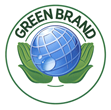How do you prove sustainability without greenwashing?
The case: There’s now a new way to prove sustainability without greenwashing.
A marketing strategy based on a product’s achievements in relation to the protection of the environment, nature, climate and our livelihoods can be very sales-effective. Not everyone, however, can demonstrate such achievements in terms of sustainability. Nevertheless, many try to fake claims of sustainability through green-spin marketing (so-called greenwashing).
The European Union has recognised this, and since 1 October 2017, the so-called European certification mark has been in use. This new type of trade mark is specifically tailored to guarantee, objectively, the characteristics of goods or services following independent examination. Anyone who acquires the right to use such a certification mark for sustainability can use it to prove the sustainability of their goods or services. The certification mark is the only type of mark that can do this.
To ensure transparency, both in terms of the conditions under which the trade mark is awarded and the product or quality characteristics that the mark stands for, the characteristics to be fulfilled for this kind of registration must be defined objectively and precisely. The set of rules is published in conjunction with the trademark and can be viewed by anyone.
The bar set for the objective definition of the product or quality characteristics is very high. The French ‘INSTITUT NATIONAL DE L’ENVIRONNEMENT INDUSTRIEL ET DES RISQUES – INERIS’ had to learn this to its cost. It was prevented from registering its well-known mark

as a certification mark. The mark was initially intended to ensure the standards of services for the protection of goods and persons in potentially explosive atmospheres. For this, the requirements to be demonstrated had to be defined precisely and objectively, across every detail. This had to be done for all systems and all devices with which and on which such services were provided. The Institute argued that in such a sensitive area as safety, such characteristics could not be summarised in a few lines. It pointed out that, as a state institution, it itself trained the persons in question in the security field. However, it was decided that although this training may indirectly guarantee a certain quality of service, this was not sufficient to be able to use the mark as a certification mark. The quality characteristics of the services to be guaranteed were not set out objectively, precisely and comprehensively enough. Thus, the concrete specification needed for a guarantee by the trade mark was lacking.
Besides such a hurdle, the certification mark must fulfil a second essential condition: its owner must be independent and neutral. They must not have any kind of commercial interest in the market of the products or services to be certified. The above case also shows how strictly this neutrality requirement must be applied. The state institute sought a guarantee of standards through the trade mark, significantly also for the service of carrying out assessment and supervision of workers in potentially explosive atmospheres. However, because it trained these persons itself, there was in theory a risk that it could have permitted only those persons who had previously been trained by it to use the guarantee mark – in return for payment. Of course, this risk was extremely slim, even far-fetched, especially as this was a state institution. Yet the rules are so strict that registration for the certification mark was refused.
Decision of the Second Board of Appeal of EUIPO of 11 March 2020 (case R 1364/2019-2).
Learnings: If you want to provide objective, real proof of the sustainability of your achievements in your marketing, you should obtain the right to use a certification mark. You should also use it specifically in your communication with the customer. For example, the following guarantee mark exists for truly sustainable goods, sevices amd companies:

Its proprietor is neutral, the audit conditions are transparent and the audit process is completely independent and objective. The author of this blog was able to register this seal as one of the first guarantee marks in the European Union.